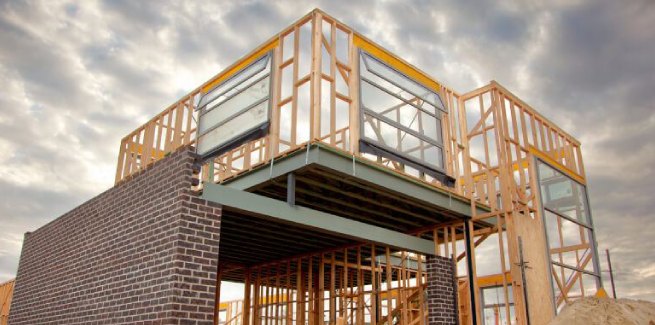The Australian Bureau of Statistics (ABS) has released building approvals figures for January, which show that the number of dwellings approved fell by 19.4 per cent to 15,926 in January (seasonally adjusted terms).
Furthermore, approvals for private sector houses fell by 12.2 per cent to 12,124, while private sector dwellings excluding houses (i.e. apartments and townhouses) fell 39.5 per cent in seasonally adjusted terms to 3,434.
Total dwelling approvals declined across all states in January, including Queensland (33.3 per cent), Tasmania (24.8 per cent), NSW (23.2 per cent), Victoria (13.0 per cent), Western Australia (4.1 per cent) and South Australia (0.5 per cent), according to the figures.
The data also shows that approvals for private sector houses dropped across all states, including NSW (19.0 per cent), Queensland (19.0 per cent), Victoria (8.4 per cent), South Australia (3.7 per cent) and Western Australia (0.9 per cent).
Meanwhile, the value of total building approved declined by 16.8 per cent in seasonally adjusted terms to $9.0 billion, while the seasonally adjusted estimate for the value of non-residential building approved fell by 16.3 per cent to $3.2 billion.
The value of new residential building dipped by 17.8 per cent to $5.0 billion, while alterations and additions to residential buildings declined by 12.7 per cent to $840.9 million.
ABS figures show that the value of total residential building approved registered a 17.1 per cent drop to $5.9 billion.
Commenting on the figures, ABS director of construction statistics Daniel Rossi said: “Approvals for private houses fell 12.2 per cent in January, following the all-time high recorded in December. Despite the fall, private house approvals remain 38 per cent higher than in January 2020.
“The surge in HomeBuilder applications at the end of 2020, as well as the extension of the program to March, will continue to provide support for private house approvals in the coming months.”
Approvals still at record high, says HIA
Housing Industry Association economist Angela Lillicrap also spoke about the data, and noted that approvals have remained at record levels despite falling “slightly” in January.
“Narrowly behind December, the strong result in January was the second largest number of detached approvals in any month since the series began in 1983,” Ms Lillicrap said.
Speaking to Mortgage Business, Ms Lillicrap said: “The decline in January is most likely just monthly volatility as it was still an exceptionally strong result.
“Based on the surge in new home sales in December, we expect approvals will remain elevated in February. They will start to taper off but remain elevated after that.
“There may be another surge in approvals just after the March HomeBuilder deadline, but this will not reach the same level seen in December due to the lower grant amount.”
She added that detached housing approvals in the three months to January 2021 are 44.5 per cent higher than the same time last year.
“We saw a spike in new home sales in December arising from HomeBuilder. These projects will continue to progress through the administrative process to gain building approval in the coming months,” she said.
“With home buyers able to access the reduced HomeBuilder grant until the end of March, we expect sales and approvals to remain elevated for several more months.
“The majority of homes approved in January are likely to already have now commenced work on site. The strong pipeline of work will ensure ongoing employment in the sector through 2021 and into 2022.”
In her analysis of the ABS data, Ms Lillicrap also noted the “significant” divergence in the conditions between detached builders and apartment builders.
She said multi-unit approvals fell by 5.7 per cent in the three months to January 2021 compared with the previous quarter, and are 15.6 per cent lower than the same time last year.
“Multi-unit projects that are gaining approval at this time are likely to have commenced the planning and building approval process before COVID,” she said.
“The apartment market is likely to be constrained until overseas migration returns.”
In the three months to January 2021, multi-unit approvals declined in Tasmania (75 per cent), Victoria (49.3 per cent), South Australia (11.6 per cent) and NSW (4.6 per cent) in seasonally adjusted terms, according to HIA’s analysis of ABS data.
However, it increased in Western Australia (65.2 per cent) and Queensland (38.3 per cent).
Multi-unit approvals declined in original terms in the Northern Territory (10.5 per cent) and the ACT (18.6 per cent), HIA’s analysis show.
[Related: Detached housing approvals at record highs]
 ;
;
